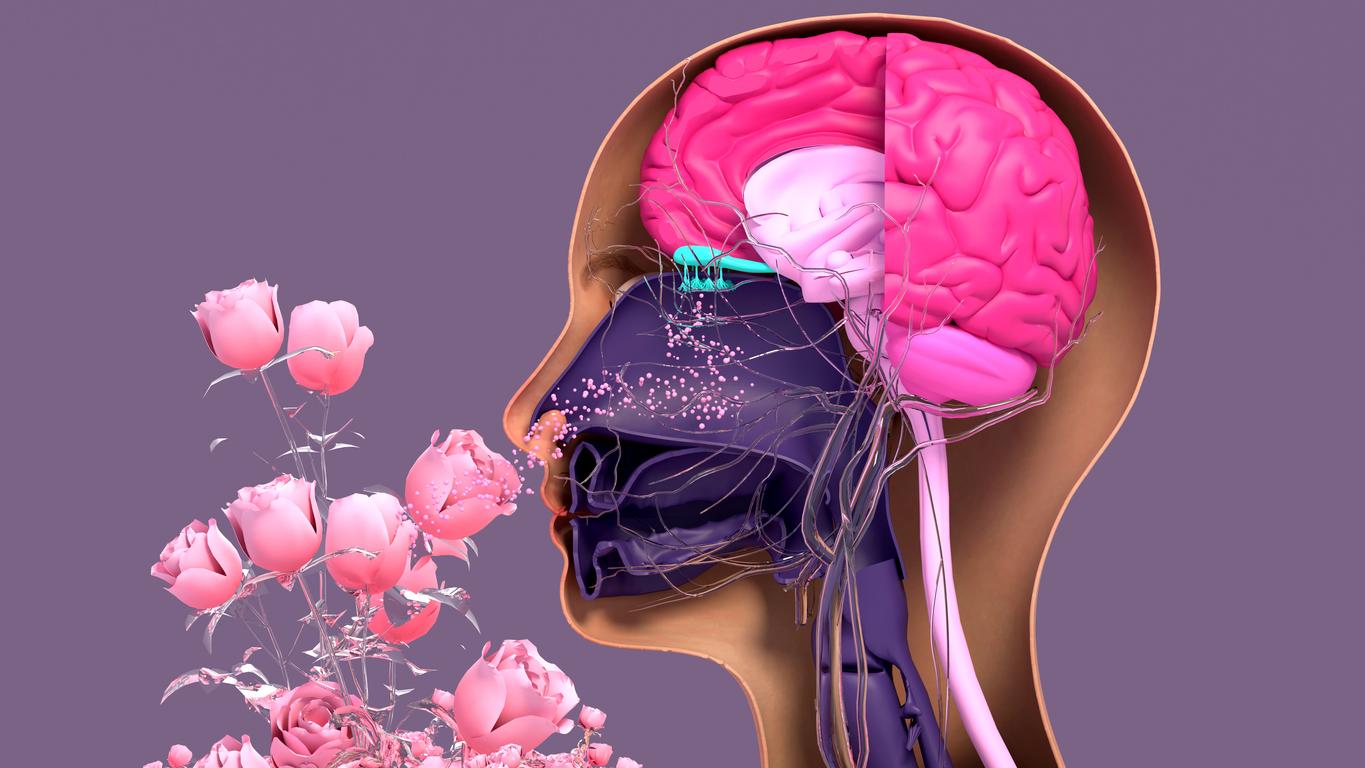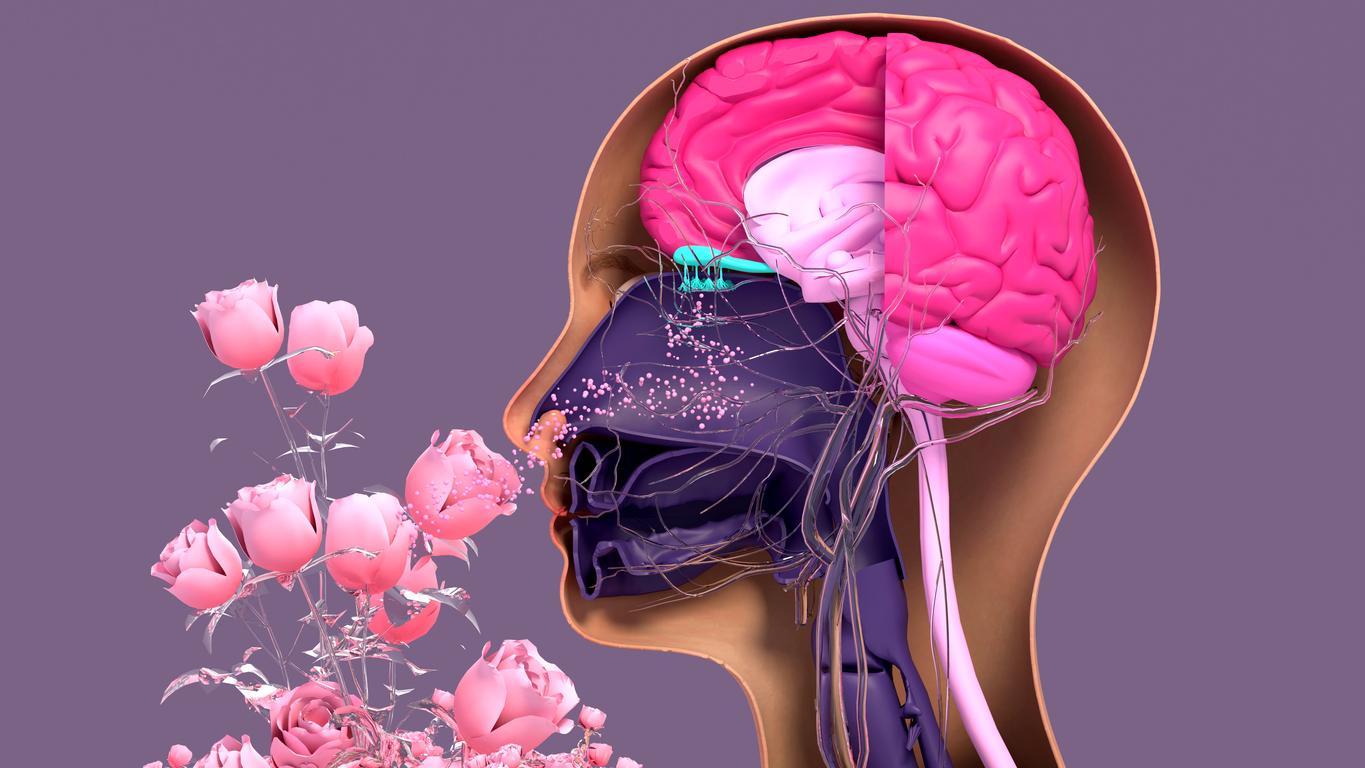American neuroscientists observed that the use of familiar smells would help depressed patients recall specific memories, which would contribute to their recovery.

- Smelling a familiar smell could help depressed patients recall memories, a key that could help improve their mental health.
- Smells stimulate the amygdala, which helps decode emotions, via the nerve connections of the olfactory bulb.
- The American team observed that olfactory stimuli are more effective than words in recalling specific memories.
Could reviving specific memories through smells be a way to help people affected by depression? In any case, this is what a study by the University of Pittsburgh School of Medicine (United States) and social workers at UPMC suggests.
Smells make memories easier to access
This work, published in the journal JAMA Network Open, started from an observation by Doctor Kymberly Young, lead author and neuroscience researcher: the activation of the amygdalae, which participate in decoding emotions, helps to remember memories. According to her, smells stimulate them through nerve connections in the olfactory bulb, which could help depressed patients recall happy memories. “I was surprised to find that no one had previously thought of studying memory recall in depressed people using olfactory cues”, has explained the associate professor of psychiatry at the University of Pittsburgh.
As part of the research, the US team presented a series of opaque glass vials containing powerful familiar odors, ranging from oranges to ground coffee, to participants. After smelling them, they had to remember a specific memory, whether good or bad.
Doctor Kymberly Young then found that the recall of memories was stronger in depressed people, who received olfactory cues rather than verbal cues. Volunteers who smelled odors were more likely to remember specific events (the fact that they had been to a coffee shop the previous week) rather than general memories (the fact that they had been to coffee shops before).
Another observation from the study: the memories stimulated by smells were also much more vivid and seemed more immersive and real. Additionally, participants were more likely to remember positive events after smelling the different odors.

Depression and olfactory stimuli: a new therapeutic avenue to consider
Scientists say smells are more effective than words in recalling specific memories. They could therefore be used in a clinical context to help depressed people escape negative thought cycles, and thus promote their gentle recovery.
Because of these interesting initial results, the researchers want to begin more advanced studies, using a brain scanner, to demonstrate that odors help mobilize the amygdala of depressed people more effectively than verbal cues. “If we strengthen memory, we can improve problem solving, emotion regulation and other functional problems that depressed patients regularly experience”noted the researcher.
















